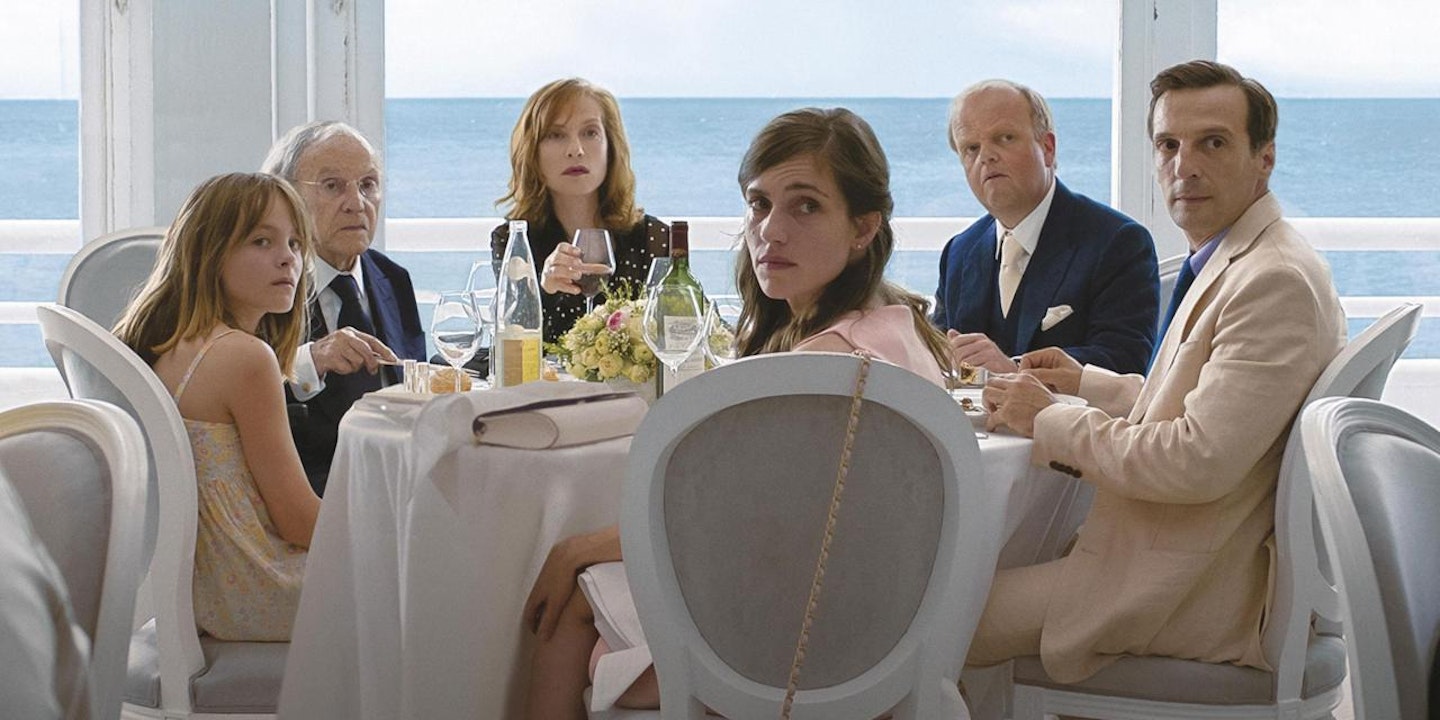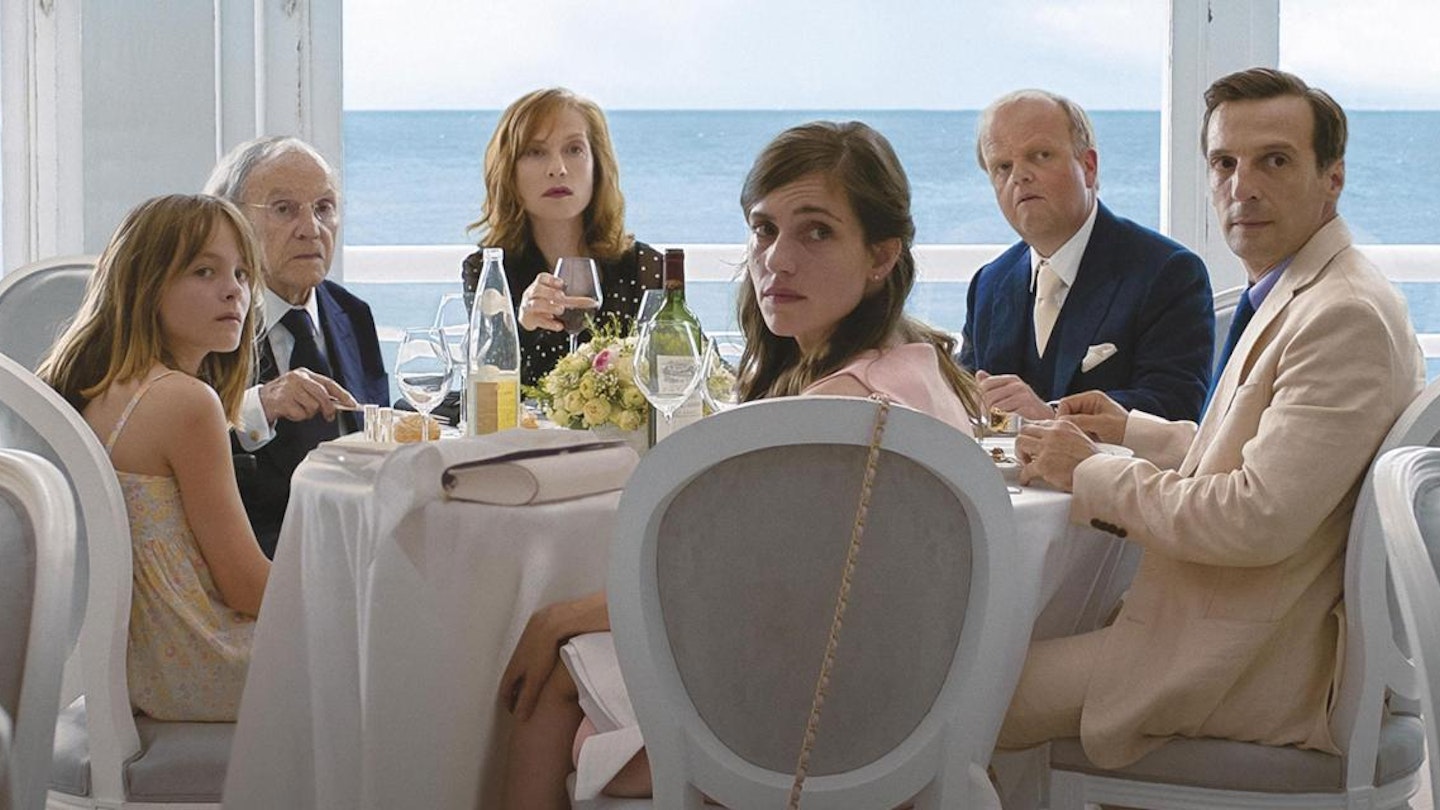Michael Haneke’s Happy End features the greatest performance by a hamster ever depicted on screen. In the second scene, disturbed 12-year-old Eve (Harduin) is experimenting on the family pet by feeding it her mother’s anti-depressants. Livestreamed on Eve’s camera phone, the hamster delivers a death scene Daniel Day-Lewis would be proud of; surprising, heart-breaking and true. This year’s Best Rodent In A Supporting Role category is a lock.
It’s a dark moment that is a good barometer of Happy End’s mood. If Haneke’s previous film, Amour, found slivers of heart unusual in his work, his latest is back to his trademark coldness. Having one foot in the kind of upper-class ennui that Antonioni minted in the ’60s, its portrait of a fractured well-to-do family is so chilly you expect AT-ATs to stomp across it; euthanasia, self-loathing, deception and depression all play a role, and that’s just the comic relief. It feels like a retreading of familiar Haneke ground, but in parts is a powerful look at lives bereft of compassion.
At its heart, Happy End is Haneke’s take on a soap opera centred around the affluent Laurent family, a clan so twisted you’d need a whole series of Who Do You Think You Are? to unravel it. The patriarch is Georges (Jean-Louis Trintignant), the now senile founder of a construction business who simply wants to end his life. He shares his Calais home with his avaricious daughter (Isabelle Huppert) and twice-married son Thomas (Kassovitz), who is looking after his daughter Eve while her mother/Thomas’ first wife is recovering from a drug overdose. Around this nucleus revolve Thomas’ current wife (Laura Verlinden), Anne’s English boyfriend (Toby Jones) and her troubled son Pierre (Franz Rogowski) who rebels against the family business as they screw over the immigrant community. And we haven’t got to the house staff yet.

As ever, Haneke's rigid control of form is breathtaking.
Haneke never spoon-feeds so it takes around an hour to get the relationships and dynamics straight. Once it does, the bleak connective tissue in the family becomes absorbing. Huppert is impeccable without show-stopping scenes worthy of her talent, Kassovitz is effectively restrained and Rogowski gets an extraordinary set-piece singing Sia’s Chandelier, a desperate slice of karaoke that sticks out from the rest of the film like a sore thumb. But the most eye-catching work is done at opposite ends of the age spectrum. Fantine Harduin turns little-girl-lost innocence and calculated viciousness on a dime, while 86-year-old Jean-Louis Trintingnant invests Georges with a blunt, stern resolve to die. The pair make a fantastic double act.
As ever, Haneke’s rigid control of form is breathtaking. Working with his usual DP Christian Berger, the film is appropriately polished and glacial. There is a stunning unbroken tracking shot following Georges in his wheelchair down a boulevard that doesn’t end the way you think it will. Conversely, if his early work focussed on the distancing effects of video, he has now upgraded to the disconnectedness of social media, placing his unflinching gaze at Thomas’ filthy Facebook chat with his lover. Equally impressive is his control of tone, from shocking violence, to naked confession, to jet black comedy in its final frames. As you might expect, the notion of a happy end in the Hanekeverse is impossible.
